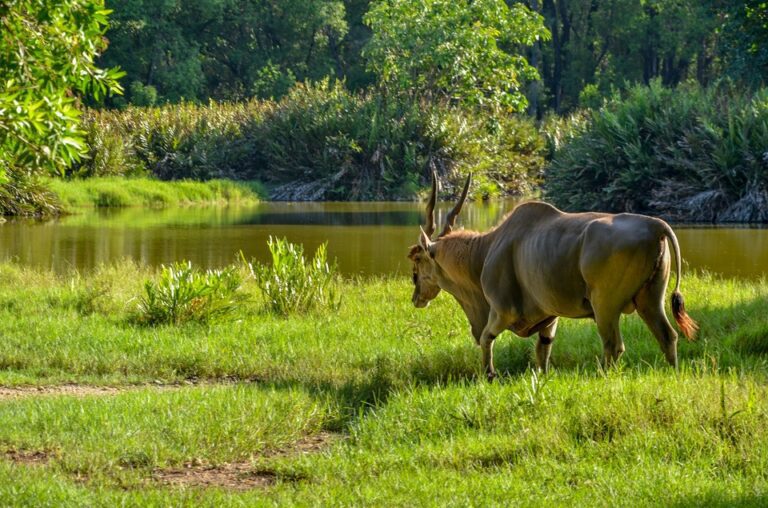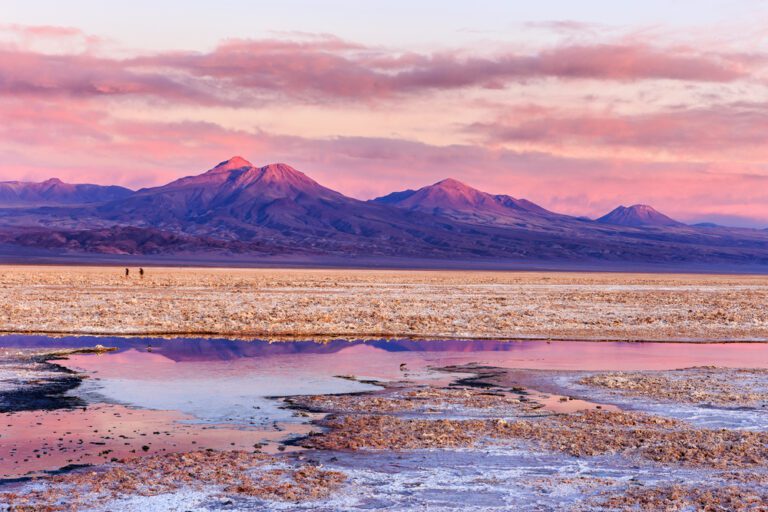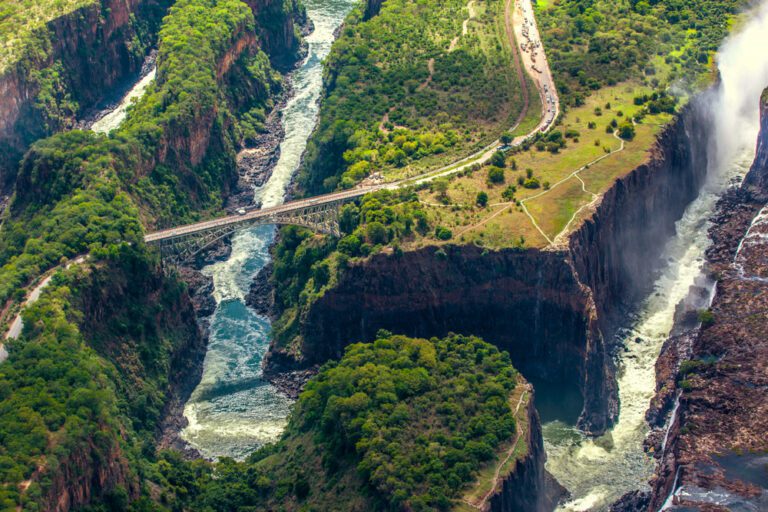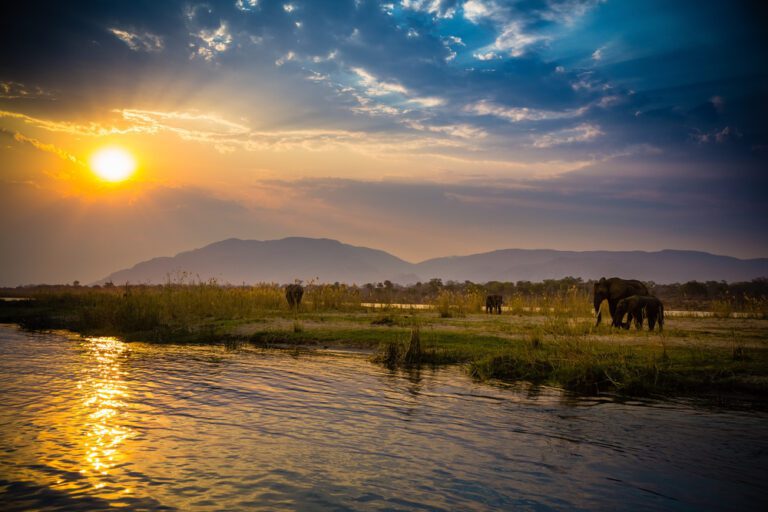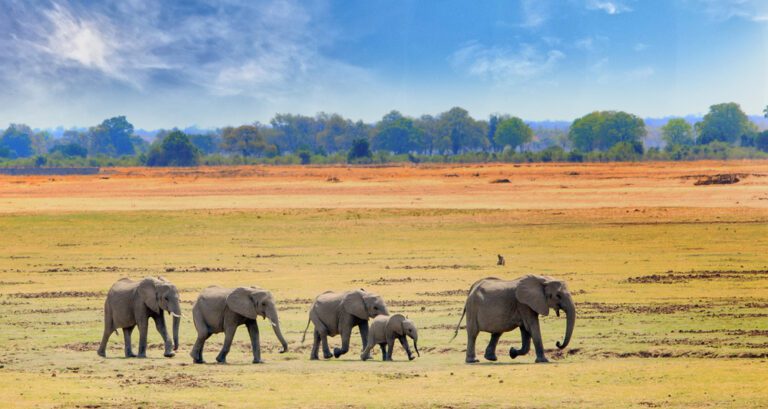1.AT A COOL HOTEL – And they don’t come much cooler than the ICEHOTEL, a glittery palace perfectly located in Jukkasjarvi, north Sweden – prime aurora territory. Not only will you have a night like no other, bedding down on a frozen divan and reindeer skins amid a gallery of snow sculptures, you can join aurora-watching trips straight from the door, and celebrate a successful night’s viewing with a cocktail at the ICE BAR. Norway’s Kirkenes Snowhotel offers a similarly spectacular set-up, its sparkling suites created by ice artists from the Chinese city of Harbin. From here, nightly trips take guests out to scout for aurora in the surrounding wilds.
2. BY HUSKY-SLED – Well worth the splurge, the most exhilarating way to explore the frozen north is by puppy-power – either as a passenger to an expert musher or by driving your own team of dogs. Short husky excursions run from many Lapland lodges; Sweden’s ICEHOTEL even offers transfers from Kiruna airport by sled. However, perhaps the best husky-aurora combo is to join a multi-day safari, mushing your own pack between stove-warmed wilderness cabins, far from light pollution and other people, ensuring that – if the lights do come out – you see them undiluted and without the crowds.
3. BY SNOWMOBILE – Some northern lights safaris use buses and jeeps to take you away from towns and position you in the best aurora spots. Perfectly fine, but not as much fun as roaring across frozen lakes and glistening tundra on your own snowmobile. This way you get to drive out to the darkest, clearest spots, perhaps stopping somewhere remote and northfacing en route to drinking a hot berry juice while you wait for the lights to show; if they don’t, at least you’ve had a thrilling ride. Just be sure to wrap up warm (balaclava essential) and select a machine that has heated handlebars. Alternatively, join a snowmobile-pulled sleigh excursion to be whizzed into the wilds by someone else.

4. IN BED – Don’t fancy freezing outside until the wee hours, waiting for the lights to appear? Then watch the aurora from the comfort of your own bed. Lapland has accommodation options that offer warm and lazy gazing via see-through, frost-free, steam-proof roofs. They come at an extra cost, but if you’re lucky enough to watch a long display from under a duvet, you won’t regret a penny. Finland’s Hotel Kakslauttanen has an array of glass-topped igloos, well spaced to ensure the privacy of those lying inside. Also in Finland, Nellim Wilderness Hotel (nellim.fi) is home to a handful of Aurora Bubbles -simple wood-and-perspex pods, with excellent heating, perched beside a frozen lake, under supremely dark skies.
5. BY SNOWSHOE – More active types might like to hike for their aurora. Guided night-time walks, using easy-to-master snowshoes to help negotiate the powder, will lead you away from any street or lodge lights; you can tramp to the ideal aurora-viewing spot, exploring the eerie lunar-lit wilderness as you go. Being on the move will also keep you warmer than just standing out in the cold for hours, potentially increasing the length of time for which you can keep a hopeful eye on the sky.
6. ON A CRUISE – For some of the darkest skies -and thus the finest aurora canvas – get away from land entirely: being out at sea ensures low light pollution. Plus many cruise ships in Arctic regions will have onboard northern lights experts, regular aurora lectures and passenger announcements when the lights are spotted, so you don’t have to spend hours freezing out on deck if you don’t want to. Hurtigruten, which runs voyages along the Norwegian coast, even offers a ‘northern lights promise’: if you don’t spot the aurora during its 12-day Classic Round Voyage, it will give you another six-day voyage for free.
7. THROUGH A LENS – Of course you can take your own aurora photos. But in order to get the very best shots of this magical phenomenon, you might want the help of a pro. Some Arctic lodges run aurora photography courses – lasting anything from a few hours to several days -offering tips on how to snap the lights; some will even lend you equipment, such as tripods, and issue you with an aurora-alert buzzer so you don’t miss a photo op. For example, Norway’s Lyngen Lodge employs an in-house photographer and has special platforms for viewing the aurora in all directions; its staff can also offer advice on post-production editing, so you can maximise the impact of your images with a little computer wizardry. Or try the Aurora Safari Camp, a scatter of remote Sami tipis in Swedish Lapland run by photographer Fredrik Broman, who offers winter workshops to help you capture the light in flight.


